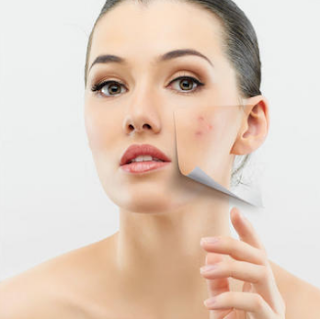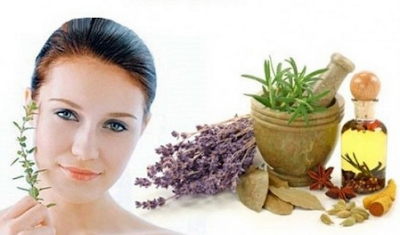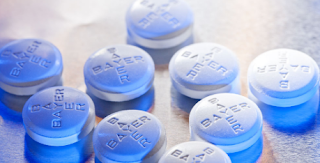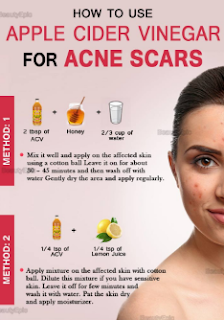 Cystic acne is a severe form of acne that can be both
painful and embarrassing. It occurs when the hair follicles become clogged with
oil and dead skin cells, leading to the formation of large, red, and sometimes
pus-filled bumps under the skin. In this article, we'll explore the causes of
cystic acne and provide some tips on how to deal with it.
Cystic acne is a severe form of acne that can be both
painful and embarrassing. It occurs when the hair follicles become clogged with
oil and dead skin cells, leading to the formation of large, red, and sometimes
pus-filled bumps under the skin. In this article, we'll explore the causes of
cystic acne and provide some tips on how to deal with it.
Causes of Cystic Acne
Cystic acne is typically caused by an overproduction of oil
in the skin's sebaceous glands. This excess oil can clog pores, leading to the formation
of acne. However, several other factors can contribute to the development of
cystic acne, including:
1. Hormones: Hormonal imbalances, especially in
teenagers and women, can lead to the development of cystic acne. During
puberty, the body produces higher levels of androgens, which can cause the
sebaceous glands to produce more oil.
2.
Genetics: If your parents or other close
relatives have a history of cystic acne, you may be more likely to develop it
yourself.
3. Diet: Some studies suggest that certain foods, such as dairy products and high-glycemic-index foods, can contribute to the development of acne.
4.
Stress: Stress can cause hormonal imbalances,
leading to acne breakouts.
Dealing with Cystic Acne
While cystic acne can be challenging to deal with, there are
several steps you can take to manage it effectively.
1.
Maintain a regular skincare routine: A good
skincare routine is essential in preventing and managing cystic acne. Cleansing
your face twice a day with a gentle cleanser can help remove excess oil and
dirt from your skin.
2.
Avoid touching your face: Touching your face can
transfer bacteria and oil from your hands to your skin, leading to the
development of acne. Try to avoid touching your face as much as possible.
3.
Use non-comedogenic products: Non-comedogenic
products are specially formulated not to clog pores, making them an excellent
option for people with acne-prone skin.
4.
Manage your stress levels: Practicing
stress-management techniques such as yoga, meditation, or deep breathing
exercises can help reduce stress and prevent acne breakouts.
5.
Seek professional help: If your cystic acne is
severe and not responding to home treatments, you may need to seek professional
help. A dermatologist can prescribe topical or oral medications to help manage
your acne.
6.
Avoid harsh or abrasive skincare products: Harsh
or abrasive skincare products can irritate the skin and worsen cystic acne.
Instead, opt for gentle and non-irritating products.
7.
Don't pop or pick at your acne: While it may be
tempting to pop or pick at your acne, this can actually make it worse by
introducing bacteria and causing further inflammation. Instead, leave it alone
and allow it to heal naturally.
8.
Consider dietary changes: While there is no
definitive proof that diet causes acne, some studies suggest that certain foods
may worsen acne symptoms. Consider reducing your intake of dairy products,
high-glycemic-index foods, and foods that are high in sugar and saturated fat.
9.
Use topical treatments: Topical treatments such
as benzoyl peroxide, salicylic acid, and retinoids can be effective in managing
cystic acne. These treatments help to unclog pores, reduce inflammation, and
promote skin cell turnover.
10.
Consider oral medications: In some cases, oral
medications such as antibiotics or isotretinoin may be necessary to manage
cystic acne. These medications can help to reduce inflammation and prevent the
development of new acne lesions.
11.
Consider light therapy: Light therapy is a
treatment that uses specific wavelengths of light to target and kill the
bacteria that cause acne. This treatment can be done at a dermatologist's
office or at home with a handheld device.
12.
Practice good hygiene: Keeping your skin clean
and free of bacteria is essential in preventing and managing cystic acne. Make
sure to wash your face and body regularly, especially after sweating or
exercising.
13.
Use ice to reduce inflammation: Applying ice to
your acne lesions can help reduce inflammation and pain. Wrap a clean cloth or
paper towel around ice cubes and hold it on your acne lesions for a few minutes
at a time.
14.
Wear breathable clothing: Tight-fitting clothing
or clothing made of synthetic fabrics can trap sweat and bacteria against the
skin, leading to the development of acne. Opt for loose-fitting, breathable
clothing made of natural fibers like cotton.
15.
Be patient: Managing cystic acne takes time and
patience. Don't expect overnight results and be consistent with your skincare
routine and treatments. With time and persistence, you can achieve clearer,
healthier skin.
In conclusion, cystic acne is a complex skin condition that
can be caused by a variety of factors. To manage it effectively, it's essential
to understand the underlying causes and take a comprehensive approach to
treatment. By practicing good hygiene, using non-comedogenic products, managing
stress, seeking professional help when necessary, and being patient, you can
achieve clearer, healthier skin and boost your self-confidence. Remember to
consult with a dermatologist if your acne is severe or not responding to home
treatments.









